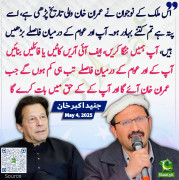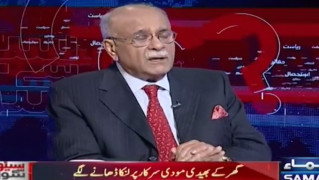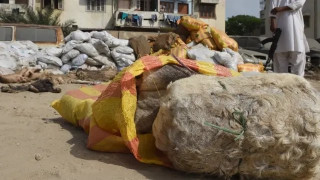hans
Banned
Brothers and sister, are we in for a big time increase in Crude oil purchase Cost?
Even with solid Saudi king backing, Actual Crude oil production has dropped.. Why?
Read on.....
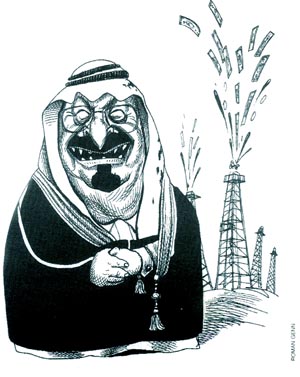
Saudi Arabia, the world's top oil exporter, posted an almost 10% monthly production decline in March says a Thursday Wall Street Journal Online article.
Saudi Oil Minister Ali Al-Naimi said Sunday that oil production from the kingdom was 8.292 million barrels per day in March, down about 800,000 barrels a day from 9.125 million barrels per day in February.
A Strange and Confusing Situation
Last February, with great fanfare, Saudi Arabia pledged to increase production -- making up lost Libyan exports. Now, we hear March production was actually down big time. Why the lack of follow through?
You can take Thursday's news two ways. The announcement may mean Saudi Arabia has decided oil is in surplus and it does not need to increase production after all (This is the official Saudi position.) Or, for whatever reason, the kingdom was simply unable to increase production after an initial February boost. Intuitively, you would think they would go all out, capitalizing on record high prices.
Notoriously secretive, Saudi Arabia has always claimed things were under control -- that it has a large excess capacity buffer and can increase oil production quickly if needed. Production, however, has essentially been flat since 2005. Exports are declining as domestic demand increases.
Will Saudi Arabia Ever Produce Over 10 Million Barrels Per Day?
While it is true that new fields are coming up for production. It is now becoming debatable as to whether Saudi Arabia can ever produce over 10 million barrels per day. Ghawar, the world's largest oil field, pumps 6.5% of world production. But, the field has been pumping oil since 1948 and rumors abound (Saudi Arabia doesn't give out figures) that it has been in decline for some time now. A lot of sea water has been pumped into Ghawar to keep production up.
In February of this year Wikileaks cables suggested Saudi reserves have been overstated by nearly 40%.
Reuters in a recent article details how Saudi Arabia, in an unexpected push to boost rig count, is contracting with western oil service companies such as Halliburton (HAL), Schlumberger (SLB), and Baker Hughes (BHI).
Supply concerns arn't the only thing roiling markets. The rapidly falling U.S. dollar is a major contributor to recent price increases (oil is priced in dollars). Emerging market demand continues to steadily increase. Chinese auto sales alone, may grow 32% in 2011, matching the 2010's increase.
High Prices and Demand Destruction
When prices rise, a "hoarding mentality" sets in. Everyone, to the extent they are able, keeps products off the market in anticipation of higher future prices. We saw this first half of 2008 as oil climbed to $150/barrel. Call it speculation or good business -- it is a phenomena of rising prices.
Of course, the process eventually ends -- usually abruptly. Consumers stop buying and demand destruction sets in. The crowd rushes for the exits and prices plumet. In less than six months, the last 1/2 of 2008, oil went from $150 to $35/barrel.
We may be back on the rollar coaster. Only now you can add MENA unrest, reserve questions, a falling dollar, and emerging market demand into the mix.
Fasten your seat belts!
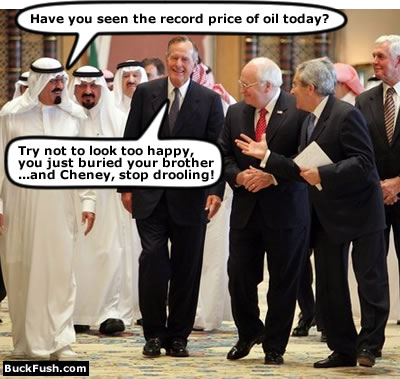
Even with solid Saudi king backing, Actual Crude oil production has dropped.. Why?
Read on.....

Saudi Arabia, the world's top oil exporter, posted an almost 10% monthly production decline in March says a Thursday Wall Street Journal Online article.
Saudi Oil Minister Ali Al-Naimi said Sunday that oil production from the kingdom was 8.292 million barrels per day in March, down about 800,000 barrels a day from 9.125 million barrels per day in February.
A Strange and Confusing Situation
Last February, with great fanfare, Saudi Arabia pledged to increase production -- making up lost Libyan exports. Now, we hear March production was actually down big time. Why the lack of follow through?
You can take Thursday's news two ways. The announcement may mean Saudi Arabia has decided oil is in surplus and it does not need to increase production after all (This is the official Saudi position.) Or, for whatever reason, the kingdom was simply unable to increase production after an initial February boost. Intuitively, you would think they would go all out, capitalizing on record high prices.
Notoriously secretive, Saudi Arabia has always claimed things were under control -- that it has a large excess capacity buffer and can increase oil production quickly if needed. Production, however, has essentially been flat since 2005. Exports are declining as domestic demand increases.
Will Saudi Arabia Ever Produce Over 10 Million Barrels Per Day?
While it is true that new fields are coming up for production. It is now becoming debatable as to whether Saudi Arabia can ever produce over 10 million barrels per day. Ghawar, the world's largest oil field, pumps 6.5% of world production. But, the field has been pumping oil since 1948 and rumors abound (Saudi Arabia doesn't give out figures) that it has been in decline for some time now. A lot of sea water has been pumped into Ghawar to keep production up.
In February of this year Wikileaks cables suggested Saudi reserves have been overstated by nearly 40%.
Reuters in a recent article details how Saudi Arabia, in an unexpected push to boost rig count, is contracting with western oil service companies such as Halliburton (HAL), Schlumberger (SLB), and Baker Hughes (BHI).
Supply concerns arn't the only thing roiling markets. The rapidly falling U.S. dollar is a major contributor to recent price increases (oil is priced in dollars). Emerging market demand continues to steadily increase. Chinese auto sales alone, may grow 32% in 2011, matching the 2010's increase.
High Prices and Demand Destruction
When prices rise, a "hoarding mentality" sets in. Everyone, to the extent they are able, keeps products off the market in anticipation of higher future prices. We saw this first half of 2008 as oil climbed to $150/barrel. Call it speculation or good business -- it is a phenomena of rising prices.
Of course, the process eventually ends -- usually abruptly. Consumers stop buying and demand destruction sets in. The crowd rushes for the exits and prices plumet. In less than six months, the last 1/2 of 2008, oil went from $150 to $35/barrel.
We may be back on the rollar coaster. Only now you can add MENA unrest, reserve questions, a falling dollar, and emerging market demand into the mix.
Fasten your seat belts!




